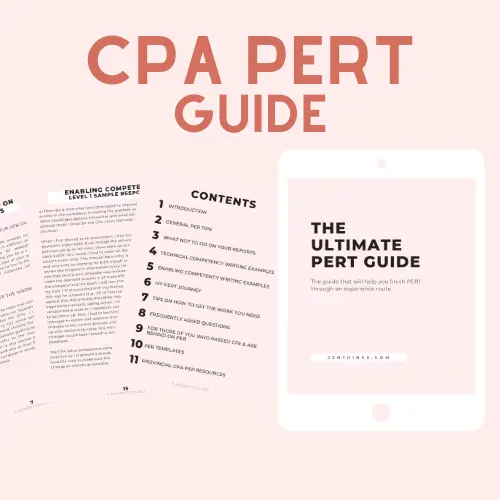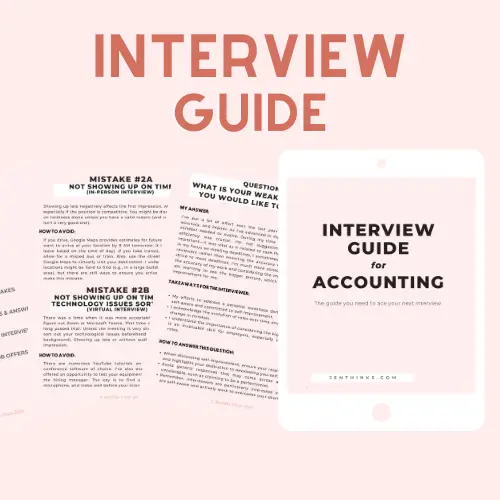I shared the message below on my Instagram after writing the Finance exam yesterday. The Finance and Core 1 exams both started at 9 AM even though the latter ended earlier. A few Core 1 writers messaged me after their exams and they were sure they failed.
It reminded me of how I felt after I wrote the same exam last December. Normally, I am not too bothered by school-related matters as they have always been something I am comfortable with. However, no warning from people who have done it could have prepared me for how exhausting and draining the module was. It was 8-week of non-stop working, learning and studying. So, I wanted to leave this message here in case this can help you feel less alone on this part of the journey.
RELATED POST – CPA PEP Core 1 – A Letter to Those of You Who Wrote Without Knotia & Think You Must Have Failed
Now that I have written 3 CPA PEP modules (Core 1, Core 2 & Finance) and written over 40 posts on CPA, I wanted to share 5 things I wish I knew before I started Core 1. I hope this helps you realize you are not alone on the journey and that you have a choice. I also want you to know despite the many benefits the CPA program offers, it is not the only path.
The CPA Program Affects All Aspects Of Your Life
Especially Your Loved Ones
From my personal experience and also from what I have heard from friends and readers, one surprise of going through the CPA program is how much it affects your life. If you live with someone or are responsible for someone, you need to be aware that they are going to be affected as well. Will they be understanding and help you out as you are going to be busy studying? When I did Core 1, most of my weekdays would be getting off work at 4 PM, meeting Eric for dinner on the way home before starting the assigned readings or practice cases close to 7 PM. I tried to study on the weekends to relieve some pressures during the week but it was not always possible or easy. Depending on your workload at work, you might also be beyond exhausted at the end of the day. If you have caregiver duties on top of that? You are thinking about studying past midnight.
It is true that subsequent modules are easier but they are not easy. There is also no guarantee that other circumstances won’t change. For example, we had to prepare for the module while dealing with a global pandemic this year.
Then, What Should You Do?
As soon as possible, talk to your loved ones and prepare them for the journey ahead. You don’t have to do this alone just because they are not in the program with you. Ask for their patience as this road requires a lot of help from your support network. It ranges from childcare support to just cheering you on when you are down. It is also important to explain to them why you are doing this and why this is important to you.
If what I suggested is not an option, join the various CPA FB groups and/or your local CPA chapters (CPA BC, CPA Alberta, CPA Ontario). If I didn’t list yours, you can google [“your province” CPA chapters]. The last but very impactful way is to seek out employment that has CPA candidates in your department. At my last job, there were 3 CPA candidates (including myself) doing Core modules at the same time at one point. That Finance department only had about 25 people so this is not exclusive to huge corporations.
RELATED POST – CPA PEP Core 1 – How to Study for the Module and the Exam
The CPA Program Tests More Than Just Technical Knowledge
When I went through Core 1, there was an overwhelming amount to learn and study for. It felt like the program was going to be all about technical knowledge. However, over time, I have found that this is so far from the truth.
Time Management
If you have already written at least one CPA PEP exam, you would know that the time given is designed to be barely enough. In fact, many candidates would report running out of time during an exam. However, if you looked at the exam cases without the time constraint, the technicals they are testing are not really more difficult than a practice case. I have written exam cases that I found to be easier on the technical level than a practice case. This is because a very big part of the difficulty is derived from the time constraint.
In order to succeed in an exam, you need to create time budgets and learn to stick to them. What often slows candidates down is getting stuck on one AO instead of moving on to the other 4 AOs (if not more). Remember, 2 Cs (Competent) or even 2 RCs (Reaching Competence) are better than 1 CD (Competent Distinction) and 1 NA (Not Addressed).
However, time management isn’t only required for the exams. You will have a more enjoyable time going through the program if you manage your time well in all aspects of your life. The work/life balance people desire is now work/life/school balance.
Critical Thinking
One thing I have learned after going through the Finance module is the importance of critical thinking skills and the ability to see the big picture. Elective cases range from 80 to 120 minutes and there are often 5 to 7 pages of texts and appendices to go through. At the end of your response, you are often required to make an overall recommendation by incorporating all the quantitative and qualitative analyses. Hence, it is crucial that you are not only strong in technical skills, but also critical thinking skills.
RELATED POST – Starting the Extended Finance Module (+ 2 Efficient Ways to Tackle Your First Assignment)
It Is Best To Know What You Are Going Through The CPA Program For
Because You Don’t Have To Do It
I wrote a post about how do I know it is okay to quit CPA a while back. I wasn’t thinking about quitting back then (in fact, I have never thought about quitting CPA since I started) but I know people who quit at various stages of the program. I wanted to provide reassurance that it is completely okay because only you know what you want and what makes you truly happy.
RELATED POST – My CPA Journey – How Do I Know If It Is Okay To Quit?
You are going to have really good and really bad days during the years-long program (2.5 to 3 years on average). There will be times where you wonder what you are sacrificing so much for. The nights and weekends you stayed home to study. The parties and trips you didn’t go on. The people you didn’t see because you were studying.
Only when you know why will you be able to persevere despite the challenges and sacrifices.
There Are Similar Or Better Paying Careers Out There That Do Not Require A CPA
So You Can Explore Your Options
If the answer is money when you ask yourself what you are going through the CPA program for, that is great. I grew up in a culture where talking about money was not the most polite thing to do but I was quite obsessed with it. I ran “businesses” to sell massage vouchers and cleaning services (I was terrible at both) to get an allowance from my parents as a kid. I shared this because I want to tell you I understand precisely what you mean.
CPABC recently released a study saying that the median annual salary for a CPA in BC is $108,000. That is about $55 per hour if you work 37.5 hours per week. Of course, if you know how the median works, you would know that some CPAs made more and some less. As cheesy as it is, the sky really is the limit but the flip side is that having a CPA doesn’t magically boost your salary up to 6-figure.
~ More CPA Posts ~
CPA PEP Core 1 – How to Study for the Module and the Exam
CPA PERT – Ultimate Guide on How to Get Your First Experience Report via EVR Approved
CPA PERT – Enabling Competencies Examples
Densmore for CPA PEP – Are The PEP Essentials Packages Worth It?
CPA PEP Module – Regular Module or Extended Module?
If you are wondering what those jobs are, this great post published by Narcity had a list of jobs that pay $100,000 or more. Also, this older Reddit thread asked the question of what jobs made $100k or more in Canada.
Your Mental Health Could Suffer And You Need To Take Care Of Yourself
Because You Come First
We all react to stress differently and have different family histories of mental illnesses. Going through the CPA program can take a heavy toll on your mental health especially if you don’t have the right support network. Also, mental illness is not a flaw or a sign of weakness. It is just like any physical illness and should be treated as such. We live in a time where a lot of work is being done on the mental health awareness movement but unfortunately, we are not 100% there yet.
However, no degree, designation or job is worth sacrificing your mental health and/or physical health for. You can always make the money back but you can’t buy health. Yes, it can provide you with the necessities but we are often chasing material belongings beyond the necessities.
You don’t have to stay in the program if you feel miserable. The program will still be here when you are ready. The destination is going to be part of your identity but it will never be all that is.
Conclusion
This post might sound like it’s trying to steer you away from the CPA program but my intention is the complete opposite. I want your decision to be an informed decision because it is a critical ingredient for a satisfying and accomplishing journey. Going into the program knowing these 5 things will set you up for success in the program. You will learn knowledge beyond the chapter readings and practice cases.
As I have already mentioned, I have not regretted starting the CPA journey. In fact, I am more and more sure of it every day. The same goes for this blog. It has made me so happy when people would come and tell me my posts helped them when they were feeling alone or isolated. In a way, I think this is the reason why I am so sure of this path.
I hope this helps, wherever you are on your journey.



